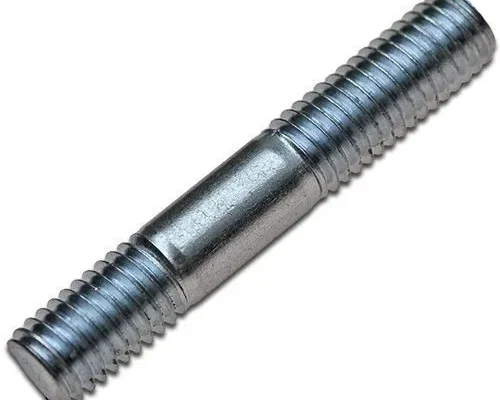Excellent Corrosion Resistance
Superior Performance in Aggressive Chemical Atmospheres
These Inconel bolts exhibit excellent performance in very corrosive environments. For instance, Inconel 625 bolts are used throughout chemical processing because these alloys resist a wide range of aggressive chemicals. Highly resistant to hydrochloric acid, sulfuric acid, chlorides – scrubbers, reactors, and chemical storage tanks bestApplication Types
Excellent sea-water resistant corrosion
The high corrosion resistance of Inconel bolts makes them particularly well-suited for marine applications since they do not become corroded in seawater. Inconel 718 bolts are commonly used in marine environments due to their saltwater resistance (high pitting and crevice corrosion due to the presence of the chloride ions), What Are Inconel fasteners used for. Corrosion resistant Rust prevention environmentSeawater corrosive featuresOffshore oil rigs, naval ships, and subsea equipment would be exposed to a mixture of seawater every day, the environment is most deadly and dangerous for normal materials due to high corrosion properties.
Oxidizing and Reductive Environment Compatible – High Performance
The pressure-containing parts,’ Inconel bolts, are inert to oxidation and safety even in reducing atmospheres. Inconel 600 bolts have a high corrosion and oxidation resistance up to 2000°F (1093°C) retaining outstanding impact strength. Due to the combination of heat and oxidation resistance, they are employed in areas that require heat treatment and petrochemical processing.
Sour Gas Test Proven
Sour gas environments are particularly tough, as hydrogen sulfide can lead to fairly significant corrosion problems, finds an example with Inconel bolt adaptors, which are highly corrosion resistant. These Alloy 718 fasteners find usage in oil and gas extraction applications that discriminate their use due to their resistance to hydrogen embrittlement and sulfide stress cracking especially in sour gas wells. This offers unparalleled long-term reliability and security in such demanding applications.
Higher Stress corrosion cracking resistance in presence of Chlorides
Inconel has great potential when it comes to its ability to resist chloride-stress corrosion cracking. Inconel 625 bolts are also one of the most commonly used hardware in applications to prevent chloride stress corrosion, including the use of power plants and marine water-cooled systems. They hinder the cracks from occurring and maintain the structural
High Strength And Toughness
Exceptional Tensile Strength
One of the nicest qualities of Inconel bolts is their ridiculous tensile strength. For example, Inconel 718 bolts can reach tensile strengths as high as 205,000 psi (1413 MPa), ideal for demanding)-but high stress-applications within aerospace and power generation industry. This high tensile strength allows the bolts to be able to hold substantial loads without shearing or warping.
Superior Yield Strength
Similarly, the yield strength of Inconel bolts is very high. Bolts made from Inconel 625 have a yield strength of approximately 120,000 psi (827 MPa) that allows them return to their original shape and also resist permanent set under a very high load. This is crucial for applications such as the casings of jet engines or components of nuclear reactors where structural integrity must be preserved.
What is notable is their strength at high temperatures
At high temperatures also, their tough features are maintained by Inconel bolts. Inconel 718, for instance, will not lose its toughness and crack under temperatures as hot as 1300°F (704°C), making it the ideal fastener material for applications found in gas turbine engines and alike high-temperature conditions. Enabling consistent thermal performance.
High Creep Resistance
The ability of Inconel bolts to resist creep is also extremely important for these fasteners. However, Inconel 625 bolts offer excellent creep resistance up to 1800°F (982°C), meaning that these bolting are able to retain their strength even in elevated temperature and high stress conditions over long durations. This is especially assailable in reflection to applications within furnace hardware and heat exchangers.
Excellent Impact Strength
This impact strength is pretty decent in Inconel bolts and it adds a lot to its toughness. Inconel 725 bolts can be impact resistant without shattering, making them an ideal choice in applications such as downhole oil and gas exploration. Their resistance to impact helps avoid catastrophic crashes in important systems.
Wide Application Areas
Aerospace Industry
Inconel Bolts are widely used in aerospace applications because they possess relatively high strength, temperature stability, and corrosion resistance. These fasteners can be reinforced and used in high heat/stress applications such as jet engines, turbine blades, or the exhaust systems in other vehicles. This will provide reassurance in the safety and reliability of the component during the harshest of conditions flown by commercial airliners.
Chemical Processing
In the presence of harsh chemicals and high temperature, the Inconel bolts are mandatory for chemical processing plants. Since they are able to withstand corrosion from chemicals like sulfuric and hydrochloric acid, Inconel 625 bolts are commonly used in reactors, heat exchangers, distillation columns, and more For the reliability and durability of essential processing equipment.
Marine Environments
Inconel is well-suited to marine environments, including the offshore environment and underwater exposure, both of which are difficult corrosive situations. The bolts made with Inconel 718 are used in the subsea equipment, naval vessels, as well as oil and gas offshore platforms because they resist the crevice and pitting corrosion that occurs from seawater. This increases the service life of marine structures and decreases their maintenance expenditures.
Power Generation
This is the reason why, Track fasteners makes a crucial part of bolted joints in power generating sectors like nuclear and fossil based power plant where inconel bolts play a great role. These bolts are commonly used in the cores of reactors, in steam generators, and in similar high-temperature and highly corrosive environments. This is to guarantee power generation systems efficiency and safety.
Oil and Gas Industry
Inconel bolts are most commonly used in the oil and gas industry, particularly in downhole and subsea applications. Inconel 725 bolts are carefully selected for their extraordinary tensile strength and resistance to hydrogen embrittlement, which make them the perfect match for applications in sour gas wells and high-pressure situations. This is critical for ensuring oil and gas is safely and economically extracted and transported.
Automotive Industry
In addition, the automotive industry benefits from using Inconel Bolts in high-performance and racing vehicles. Their ability to withstand high temperatures and stresses due to they are widely used during turbochargers, exhaust systems as well as engine components such as different gaskets sealing different flanges of the machine. This also improves the performance and lifespan of automotive parts.
Long Service Life
Unparalleled Wear Resistance
You must have heard somewhere that high temperature under increased pressure loosens fasteners, but this does not seem to be the case with Inconel bolts. For instance, Inconel 625 bolts are seen minimal wear after several long exposure use in high temperature and high stress conditions like in Jet engines. This resistance provides security to the bolts and prevents them from degradation or loosening – achieving optimal results over a long period of time.
Superior Performance in Extreme Environments
They are also known for performing better in extreme conditions, giving them a longer lifecycle. Used in subsea oil and gas exploration, Inconel 718 bolts can bear the brunt of saltwater corrosion and high-pressure environments; At least 10x more wear-resistant than conventional bolts. This desistance from swift replacements extends the part and parcel of a solar setup, providing smooth operations.
High creep and fatigue resistance
This enables Inconel bolts to resist creep and fatigue even after extended use at high temperatures and stresses. For example, bolts made of Inconel 600 are used to hold parts together in nuclear reactors, and they last nearly indefinitely; they remain strong at high temperatures and (with very little wear or even creep) steadily exposed to neutron radiation. However, such quality makes the bolts reliable and extraordinarily safe into the long term.
Industrial Application wherein Long-term Durability is Proven
In industrial use, Inconel bolts have shown excellent reliability over time, saving on maintenance and replacement. These grades also offer long term resistance against aggressive chemicals, and Inconel 625 bolts used in chemical processing plants offer corrosion resistance against some of extremely more aggressive chemicals such as sulfuric acids and hydrochloric acids for over 10 years. This aging process makes this equipment more efficient and cost-effective for industrial operations.
Extended Service Life under High-Temperature Environments
The improved service life in high-temperature environments is well known for Inconel bolts. Common applications for Inconel 601 bolts in furnace hardware and heat treating equipment demonstrate the reliability of the material, with the ability to preserve mechanical characteristics to contrast surge temperatures and oxidation for upwards of 15 years of service. It is this performance that has made them so popular for use in high temperature industrial processes.
Applications of Ceramic Coatings: Marine & Aerospace
The durability and performance of Inconel bolts also make them useful in the marine and aerospace sectors, where they help to reduce their overall lifespan. Inconel 718 bolts, an industry-standard bolt in both, meet the area and mechanical stress environmental requirements for a design life in excess of 20 years. This dependability guarantees the security and productivity of significant applications in these high-pressure environments.






